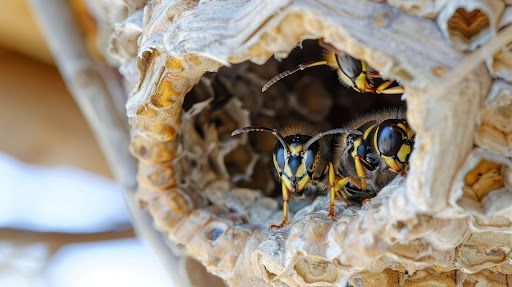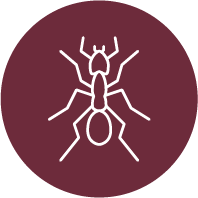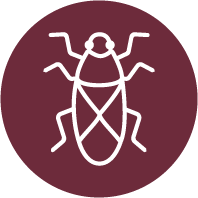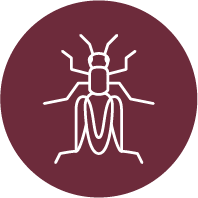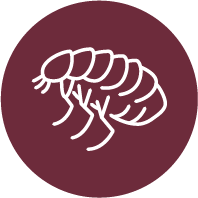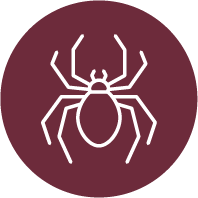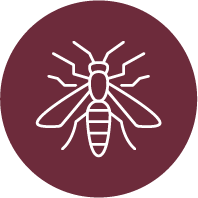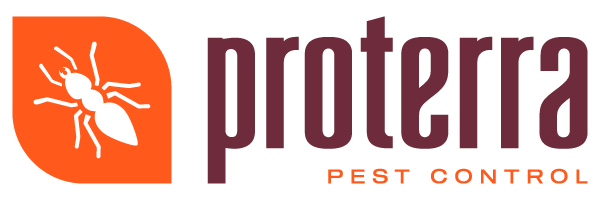April 1, 2025
Kennewick residents understand the beauty and benefits of living in a region characterized by warm summers and diverse local wildlife. Wasps can be a familiar sight in this setting—often appearing in backyard gardens, picnic areas, and near homes. While these insects do serve specific ecological functions, they can become a nuisance and pose risks when their numbers grow too large or when nests develop close to living spaces. This guide offers detailed insights into the types of wasps found in the Kennewick area, the potential threats they carry, and practical methods for controlling them without resorting to harmful approaches. Understanding Wasp Species in Kennewick Kennewick’s climate is suitable for several varieties of wasps. Two commonly encountered species are paper wasps and yellow jackets. Their nesting habits and temperaments differ, though they share certain traits, such as their capacity to sting when threatened. Paper Wasps: Known for their signature umbrella-shaped nests, paper wasps prefer to build their nests under eaves and other sheltered areas like tree branches. They can be mildly aggressive if their nest is disturbed. Paper wasps feed on insects like caterpillars, sometimes offering natural pest control benefits. Yellow Jackets: With their distinct yellow-and-black bodies, yellow jackets are more aggressive (especially in late summer) and often nest in hidden cavities like voids in walls or underground burrows. They can be quite territorial if they perceive a threat. Serious allergic reactions to wasp stings do occur, so understanding which species is present on your property—and their potential to become a hazard—is essential. Wasp stings can result in swelling , anaphylactic reactions, and other complications if left unchecked. Potential Risks Posed by Wasps The presence of wasps around your home can create more than mere discomfort. Stings may be painful, and for those with allergies, a single sting can potentially lead to severe health complications. Even if you are not prone to allergic reactions, an encounter with an aggressive wasp can ruin an outdoor gathering or present a risk for children and pets playing nearby. Large wasp populations can also disrupt daily routines. Having to avoid certain areas in your yard or being forced to keep windows closed to prevent wasps from entering can negatively impact quality of life in warm weather months. By recognizing these risks early, Kennewick residents can take proactive measures that focus on safe and responsible pest management. Practical Methods for Controlling Wasp Presence Effective wasp control involves a combination of maintenance, vigilance, and, in some cases, professional intervention. Before taking any action, it’s vital to confirm that wasps are indeed causing problems, as pollinators and other insects might also be present. Here are approaches that prioritize safety and preserve ecological balance: Regular Inspection: Make a habit of checking potential nesting areas around your home—like gutters, eaves, and wall voids—particularly in late spring and early summer. Addressing nest-building activities when they first appear can greatly minimize a wasp infestation. Physical Barriers: Sealing cracks and gaps in exterior walls, along window frames, and near doors can deter wasps from building nests indoors. Well-fitted door sweeps and screens keep wasps from sneaking into the home. Sanitation Measures: Like many insects, wasps are drawn to trash bins, compost heaps, and remnants of sugary foods. When cleaning up after barbecues or outdoor gatherings, ensure food scraps and beverages are disposed of promptly. Covering garbage cans with secure lids helps diminish wasp activity in the vicinity. Strategic Nest Removal: Small exposed nests can sometimes be removed in the evening when wasps are less active. However, it is advisable to wear protective clothing and work with extreme caution. If you’re uncertain or dealing with a large and well-established nest, contacting a professional service is usually the safest route. Safe Alternatives and Eco-Friendly Insights Kennewick residents increasingly prefer strategies that protect the local environment. Non-toxic traps, controlled relocations, and targeted nest removal all reduce the need for broad-spectrum pesticides. These kinds of measures offer a balance between managing wasp activity and preserving beneficial insects in the yard. Professional Wasp Control: When and Why While do-it-yourself approaches work well for minor infestations, certain wasp situations call for expert help. This is especially true if: The nest is in an inaccessible place (such as beneath house siding or inside a wall). You or someone in your household has experienced an allergic reaction to wasp stings. The wasp population has grown extensive, and the threat of stings has significantly increased. Professional pest control teams use tools and techniques designed to minimize harm to people, pets, and the environment. Licensed technicians have insights into wasp nesting patterns and can remove large nests quickly and effectively. Experts also offer useful prevention tips that align with Kennewick’s climate and wildlife. Prevention Tips for Year-Round Peace of Mind Maintaining a wasp-free environment demands ongoing awareness and small but crucial lifestyle habits: Trim vegetation: Overgrown shrubs and tree branches create ideal shelter for nesting. Regular pruning can disperse wasp activity. Repair damage: Fix screens, mend cracks, and patch holes early, as wasps often slip into neglected spaces. Use caution with sweet foods: If you enjoy outdoor gatherings, keep sugary drinks and desserts in sealed containers. Monitor hotspots: Keep an eye on eaves, attics, and garages—especially in the spring when wasps begin scouting for nesting spots. Staying proactive will help homeowners enjoy their outdoor spaces without fear of encountering unwanted wasps. Looking for Support? Because wasp behavior can quickly escalate from harmless curiosity to a painful discovery, seeking expert support is often the best approach. If you suspect you have a significant nest on your property or you’re unsure of your safety, feel free to turn to a reputable professional. When in doubt, investing in a trained service helps safeguard you, your family, and the local ecosystem. If you have questions, concerns, or need help assessing wasp activity on your property, contact Proterra Pest Control today for personalized solutions. You can also explore more about our range of pest control services tailored to Kennewick’s unique environment. By combining early prevention, eco-friendly methods, and expert guidance, you can keep your home and yard a welcoming haven free from wasp-related stress.

